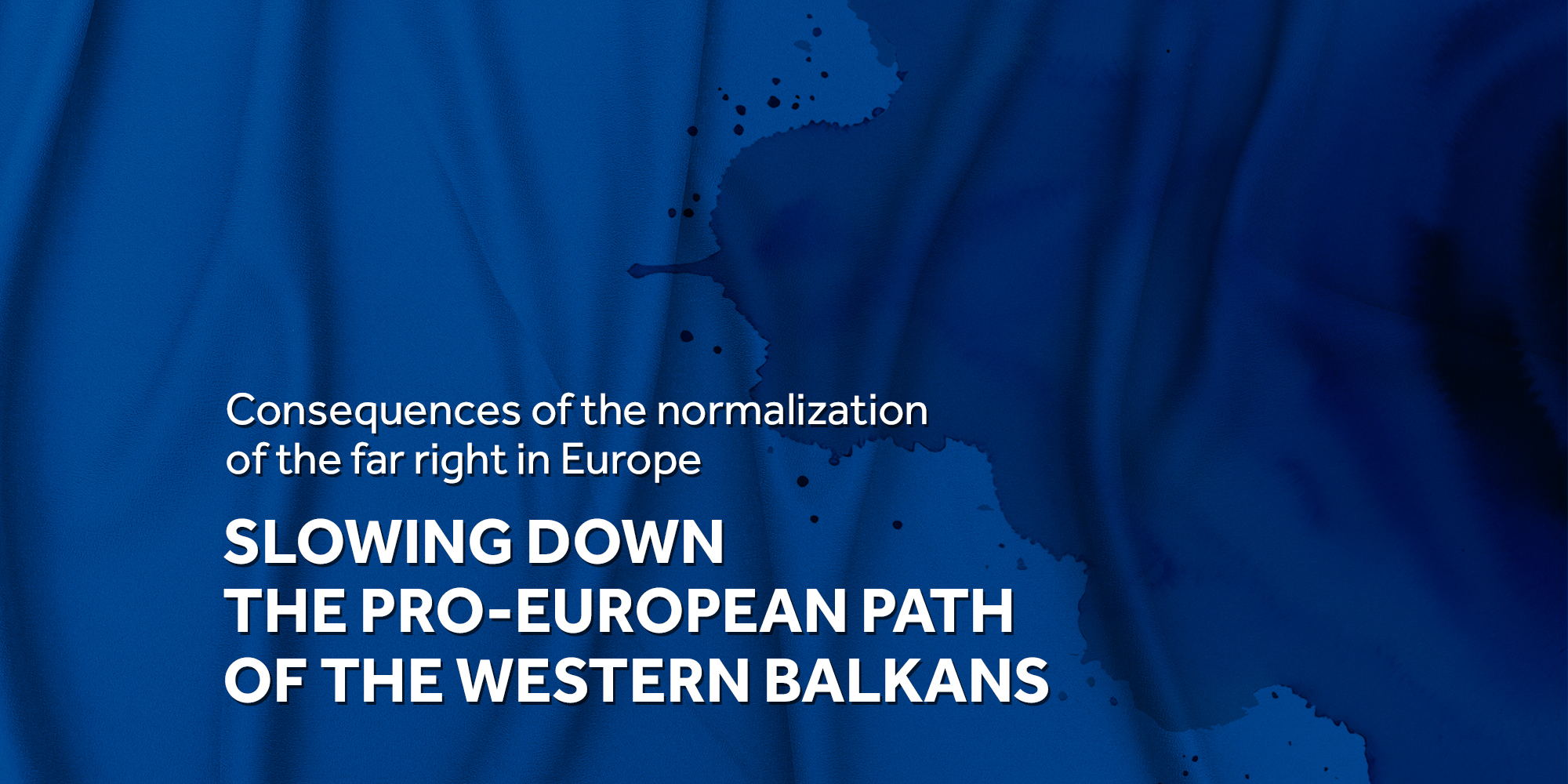In the new millennium, far-right populism was not acceptable within the European Union due to its direct conflict with its values. This was best illustrated at the beginning of the 2000s when the far-right Freedom Party (FPÖ) won just under 27% of the votes and entered the Austrian government, triggering strong reactions from other EU member states. Even former French President Jacques Chirac refused to debate with the leader of the far-right French National Front, Jean-Marie Le Pen, due to his rigid views.
However, over the past decade, there has been a noticeable increase in right-wing movements that vary between right-wing populism and right-wing radicalism in stable and developed European democracies. Parties based on far-right populism have gained increasing support by exploiting public concerns about globalization and migration. While there are various economic, social, cultural, and political causes for this trend of rising far-right influence in Europe, it’s hard to pinpoint the most significant one. Economic crises, growing social inequality, the migrant crisis, and a general crisis of democracy are just a few contributing factors. Today, far-right parties across Western Europe are strengthening, consistently performing well in polls and increasingly taking ministerial positions in coalition governments.
Key characteristics of the far-right
Far-right ideologies embody the most rigid elements of European ideological tradition: exclusive nationalist essentialism, anti-enlightenment dogmatism, and political authoritarianism. Three key features of European far-right movements are chauvinist ethnic elevation of a nation, anti-migrant xenophobia, and anti-political, anti-establishment populism. Far-right movements often identify enemies, which further fosters the spread of ideological elements like intolerance towards minorities, racism, and xenophobia. Therefore, religious and ethnic minorities, refugees, migrants, and LGBTQ+ communities are common targets of these groups.
Recently, new influences have emerged, including the climate crisis, the COVID-19 pandemic, the conflict in Ukraine, and the growing digitalization of society. Right-wing parties in Europe have adeptly used the COVID-19 pandemic to spread anti-establishment populism. Measures such as curfews and mandatory vaccinations have led to protests led by anti-science movements and far-right organizations. Additionally, taking advantage of the sudden rise in living costs due to the conflict in Ukraine, the European far-right seeks to influence the positioning of EU member states and their citizens in the conflict.
Periods of crisis have historically been fertile ground for the growth of the far-right. However, there has been a consistent and steady rise of the far-right in Europe since around 1980, with few interruptions. Fragmentation and political polarization in Europe have further contributed to the strengthening and increased significance of the far-right, making it an increasingly crucial factor in the formation of European governments.
The far-right has demonstrated its ability to adapt to new circumstances by moderating some of its positions that alienate voters, leading to a decline in the number of Eurosceptics.
Simultaneously, the right center has gradually embraced certain far-right stances, creating space for collaboration. As a result, the discourse of the far-right is being normalized through right-center parties.
Far-right parties in EU countries
In Italy, Giorgia Meloni became the Prime Minister after her far-right party, Brothers of Italy (Fratelli d’Italia), won nearly 26% of the votes in the September 2022 elections, a 22% increase from 2018. She formed a coalition with ideologically aligned parties Forza Italia and Lega per Salvini Premier. Since taking office, Meloni has focused on economic stability, supporting Ukraine (unusual for far-right parties in Europe), and building good relations with Brussels.
The Alternative for Germany (Alternative für Deutschland – AfD) won regional elections in eastern Germany in June 2023, giving the far-right party a significant boost in expanding its influence nationwide. Public opinion polls indicate that nationally, faced with inflation, recession, increasing numbers of refugees, and a fractured coalition government, voters are more inclined towards the xenophobic, anti-Islamic AfD than Chancellor Olaf Scholz’s Social Democratic Party (SPD).
In France, Marine Le Pen secured a record 41.46% in last year’s presidential elections, and her far-right National Rally (Rassemblement National) won 89 out of 577 seats in the parliament, a stark increase from previous elections. As the largest opposition party, the National Rally aims to reshape its image and soften its longstanding accusations of racism and xenophobia.
Far-right parties have also gained influence in Austria, Hungary, Sweden, and Finland. The Spanish right-wing recently won a majority in snap parliamentary elections but lacks the ability to form a government independently, relieving many in Spain and Europe as the right, at least for now, will not be part of the ruling majority.
The strengthening of far-right parties as a warning for the Western Balkans
Far-right parties in the EU are witnessing increasing support, and in some countries, they are part of or support governments, as seen in Italy, Hungary, Poland, Finland, and Sweden.
In the meantime, the European far-right has evolved significantly. Its leaders have more potential to implement policies that could keep them in power and reshape their countries and the European Union according to their own plans. The upcoming elections for the European Parliament in 2024 could have significant implications for the Western Balkans and its European integration.
The rise and radicalization of the right are global phenomena, and the driving forces behind the new European right (political, national/identity, and economic crises) are the same in Montenegro and the wider region. This implies that the strengthening of the far-right within the European Union could embolden the far-right in the Western Balkans. The ideology of the far-right in the Western Balkans encompasses ethnic homogenization, relativizing state and ethnic borders, historical revisionism, rehabilitating collaborationist movements, promoting traditional values, uncritically elevating religion, opposing liberal democracy and multiculturalism, and harbouring intolerance towards minority social and ethnic groups.
The Western Balkan far-right also holds anti-EU and anti-NATO views. It seeks to enhance cooperation with Moscow and Beijing, aligning with autocratic regimes that have hindered the region’s democratization and integration into the EU for years. All of this underscores that the strengthening of the far-right in Europe could have negative effects on the ongoing democratization process and pro-European path of the Western Balkans.

